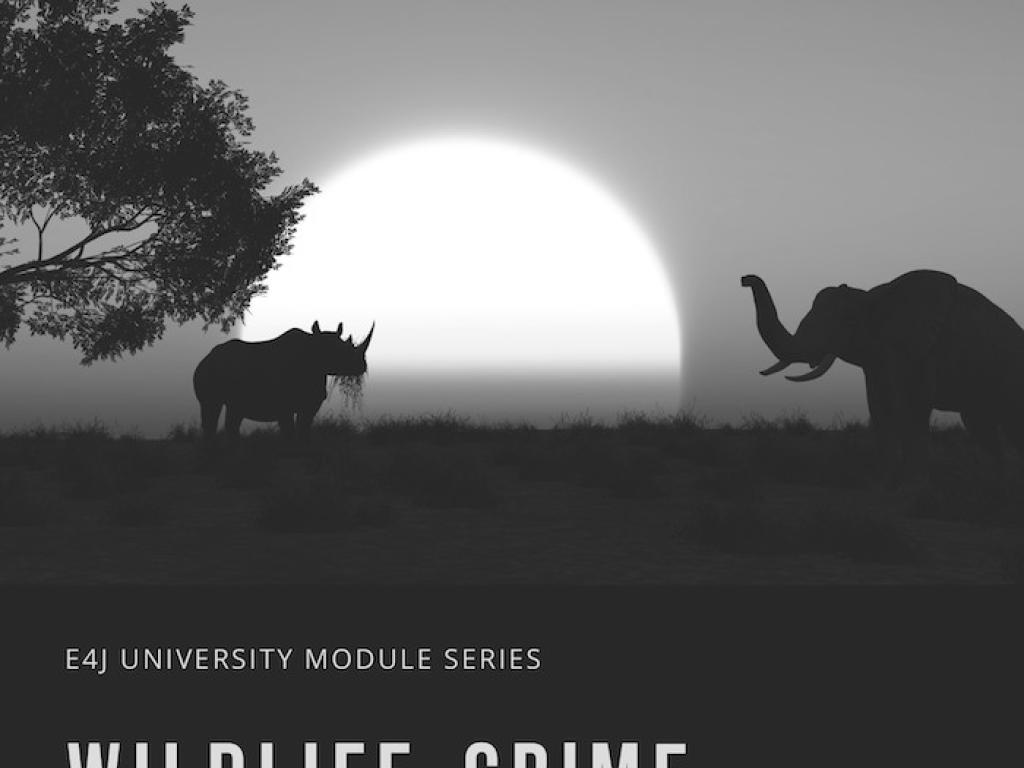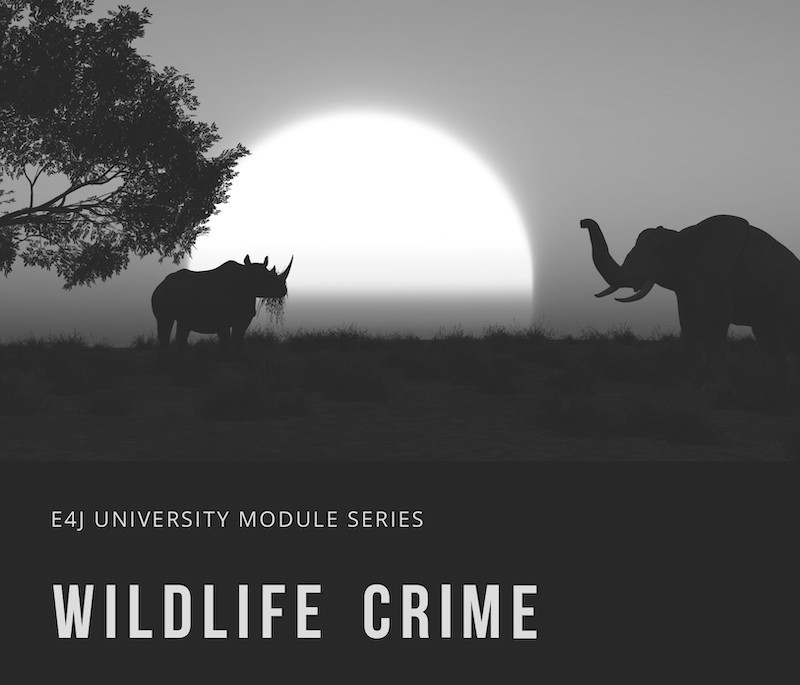Sustainable livelihoods and community engagement


GRG senior researcher, Annette Hubschle, who heads the GRG's Environmental and Planetary Futures Project, developed a teaching module on sustainable livelihoods and community engagement, as a whole-of-society response to wildlife crime for the Education for Justice initiative (E4J) of UNODC - United Nations Office on Drugs and Crime. Diana Berzina from Maastricht University provided research assistance.
Brief overview:
Sustainable livelihoods and community engagement, module, provides an overview of how supporting sustainable livelihoods and promoting community engagement may assist in preventing and combating wildlife crime. The term “wildlife,” for the purpose of this module, includes all species of wild flora and fauna. The focus on communities and sustainable livelihoods is in line with one of the four pillars of the intergovernmental conferences held in Kasane, Hanoi and London to reduce illegal trade in wildlife. The other pillars are law enforcement (compare with Module 3 of the Wildlife Crime series), legal frameworks (compare with Module 2 of the Wildlife Crime series), and demand reduction (compare with Module 1 of the Wildlife Crime series). While the latter are traditional and often state-centred responses, the community-focused approach is seen as part of a whole-of-society response that incorporates strategic cooperation and engagement of civil society. Proponents of this community-focused approach regard local communities living near protected areas, forests and fisheries as fulcrum institutions and individuals that hold the key to conserving natural resources for future generations. The module discusses how sustainable livelihoods and community engagement in conservation may not only assist in addressing crime but can also lead to crime prevention. This module can be taught on its own but offers a more comprehensive view of wildlife crime when used in combination with Modules 1-4 of the Wildlife Crime series.
The Education for Justice (E4J) initiative seeks to prevent crime and promote a culture of lawfulness through education activities designed for primary, secondary and tertiary levels. These activities help educators teach the next generation to better understand and address problems that can undermine the rule of law and encourage students to actively engage in their communities and future professions in this regard.
Tertiary Education
Through the Education for Justice (E4J) initiative, the United Nations Office on Drugs and Crime has co-created and jointly developed a series of peer-reviewed university modules and other tools with academics to assist them in teaching on some of today's most crucial threats. Specifically, E4J aims to support tertiary level educators and academics in their efforts to transmit knowledge and create a deeper understanding of rule of law related issues, with a focus on the subject areas of crime prevention and criminal justice, anti-corruption, organized crime, trafficking in persons and smuggling of migrants, firearms, cybercrime, wildlife crime, counter-terrorism as well as integrity and ethics. More than 600 academics and national experts from more than 550 universities and 114 countries contributed to the development of the university module series and participated in related activities. Since its inception, E4J has brought together more than 1,700 lecturers to support them in their efforts to teach on SDG 16 and rule of law related topics. In addition, several partners actively support E4J in the dissemination and translation of modules in various languages in order to make them accessible to a diverse and global audience.
The university modules are designed for use as either stand-alone teaching resources, or as a means of enhancing existing courses in criminology, law, political science, international relations, sociology, and many other disciplines. A “pick and choose” approach allows for lecturers to seamlessly fit them into current syllabi. Alternatively, lectures can use the “create your own course” feature and combine modules form different thematic areas to suit their needs. They are open source and available for free.
Please access the Sustainable livelihoods and community engagement module here >>>
